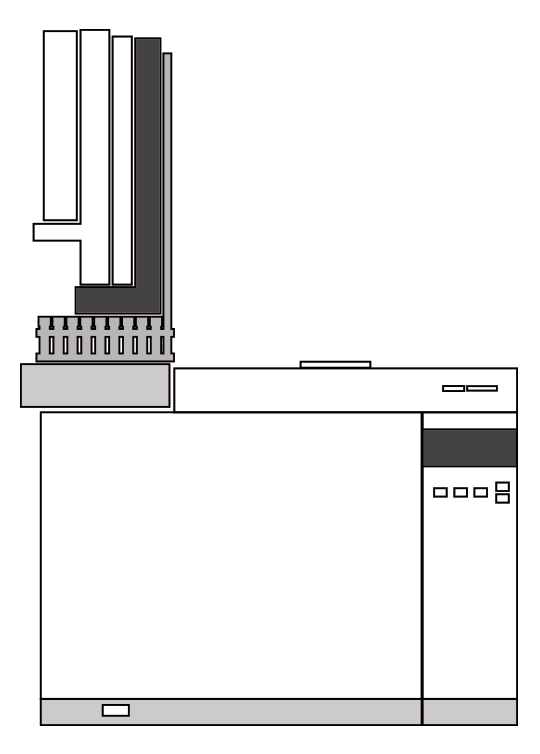Hydrogen or Nitrogen for Electron Capture Detector (ECD)?
What is GC-ECD?
Gas Chromatography with an Electron Capture Detector, GC-ECD, is a technique commonly used in the pharmaceutical, forensic and environmental markets. The Electron Capture Detector, invented by Scientist James Lovelock in 1957, is used to detect molecules and atoms in a gas via electron capture ionization, to detect electron-absorbing halogenated compounds.

Representation of a typical GC-ECD
How does GC-ECD work?
When a gas is passed through the ECD, some electrons of certain molecules which pass through the detector are captured and the current being measured reduces, which results in a positive peak being recorded. In order to pass a sample through the ECD, a carrier gas, such as hydrogen or nitrogen must be used.
Hydrogen or nitrogen for GC-ECD carrier gas?
Although both hydrogen and nitrogen can be used as carrier gases for GC-ECD, nitrogen is most commonly used due to its inertness and low water and oxygen impurity content. It’s important for ECD carrier gas to have low water and oxygen impurities to avoid high baseline noise and column bleed.
The good news for anyone performing Gas Chromatography with an ECD is that both nitrogen and hydrogen, the most common GC-ECD carrier gases, can be generated on demand with a gas generator. Using a gas generator to supply ECD carrier gas brings many benefits to a laboratory. A gas generator eliminates the need for gas cylinders to be used in a lab which means that laboratory staff don’t have to be trained to move heavy objects filled with pressurized gas. Getting rid of gas cylinders also frees up valuable lab space, and with no cylinders to monitor for impurities or dwindling supply, and with no need to order more gas cylinders or accept deliveries, lab staff will have more time to focus on higher priority work.
A nitrogen generator or hydrogen generator are also a much more convenient options for a laboratory than using cylinders. While cylinders vary in purity from first to last use and from cylinder to cylinder, a gas generator will always supply the consistent purity of gas which is required by analysis instruments. A gas generator will also never run out mid-analysis unlike cylinders which must be regularly monitored and changed over when they run out.
For laboratories which perform GC-ECD, and use nitrogen or hydrogen carrier gas, it is evident that a gas generator is the most suitable option to supply the gas required. A gas generator is the best option for GC-ECD due to their convenient ease of use, consistent purity and the valuable time which they free up for laboratory staff to focus on priority work, rather than monitoring, changing and ordering gas cylinders.
Found this article interesting? You may also like:
Benefits of gas cylinders over gas generators, expert opinion